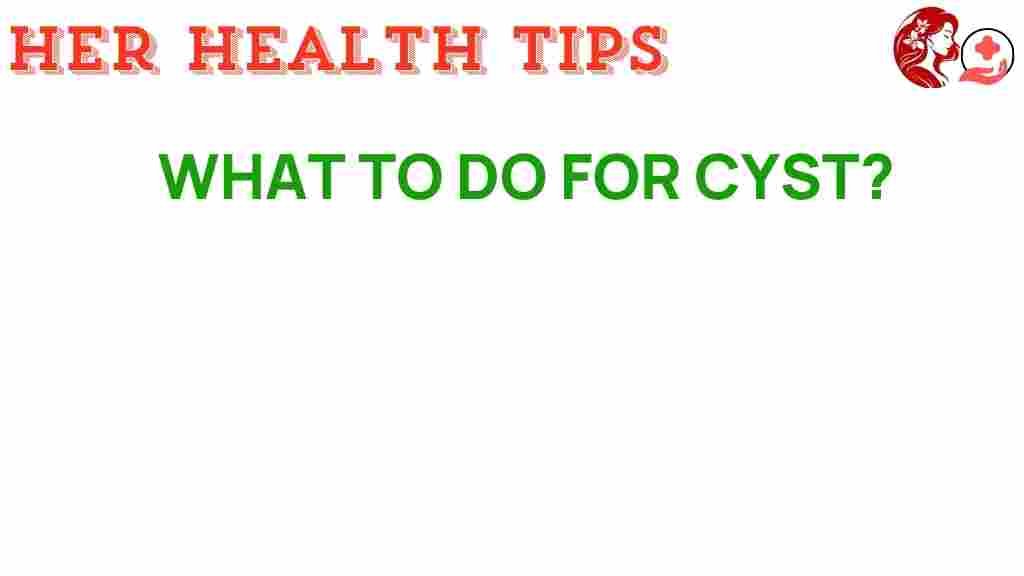Cysts: Understanding Their Symptoms, Diagnosis, Treatment, and Prevention
Cysts are fluid-filled sacs that can form in various parts of the body. While they are often harmless, understanding their symptoms, diagnosis, treatment options, and prevention is essential for maintaining good health. In this comprehensive guide, we will unravel the mystery surrounding cysts, providing you with valuable information on their care and management.
What Are Cysts?
Cysts are abnormal growths that can occur in any tissue or organ. They are typically filled with fluid, air, or semi-solid material and can vary in size from microscopic to several centimeters in diameter. While some cysts may cause discomfort or pain, many are asymptomatic and are discovered incidentally during imaging tests.
Common Types of Cysts
- Epidermoid Cysts: Often found on the skin, these cysts arise from the outer layer of skin cells.
- Ovarian Cysts: Form in the ovaries and can be linked to hormonal changes during the menstrual cycle.
- Baker’s Cyst: Located behind the knee, this cyst can cause swelling and discomfort.
- Pilonidal Cyst: Typically found near the tailbone, these cysts can become infected and painful.
- Ganglion Cysts: Often found on the wrists and hands, these cysts are filled with a jelly-like fluid.
Symptoms of Cysts
The symptoms associated with cysts depend largely on their size and location. Some common symptoms include:
- Swelling or lumps on the skin
- Pain or tenderness in the affected area
- Redness or inflammation
- Difficulty moving nearby joints
- Pressure or discomfort
It is crucial to monitor your body for any unusual changes and seek medical advice if you notice persistent symptoms.
Diagnosis of Cysts
Diagnosing a cyst typically involves a combination of physical examinations and imaging tests. Here’s a step-by-step process to understand how healthcare professionals diagnose cysts:
- Physical Examination: The healthcare provider will examine the affected area, noting the size, shape, and any associated symptoms.
- Medical History: A thorough medical history will be taken to understand any potential risk factors or previous occurrences.
- Imaging Tests: Ultrasound, CT scans, or MRIs may be utilized to get a clearer picture of the cyst’s characteristics.
- Biopsy: In some cases, a sample of the cyst may be taken to rule out cancer or other serious conditions.
Early diagnosis is critical for effective treatment and management of cysts.
Treatment Options for Cysts
Treatment for cysts varies based on their type, size, and symptoms. Here are some common treatment options:
- Observation: If a cyst is small and asymptomatic, it may simply be monitored over time.
- Drainage: For cysts that cause discomfort, a healthcare provider may drain the fluid from the cyst.
- Surgery: In cases where a cyst is large, painful, or recurrent, surgical removal may be recommended.
- Medications: Pain relievers or anti-inflammatory medications may help manage symptoms.
It is essential to consult with a healthcare professional to determine the most appropriate treatment for your specific situation.
Home Remedies for Cysts
While professional treatment is often necessary, some home remedies may help alleviate the symptoms associated with cysts:
- Warm Compress: Applying a warm compress to the cyst can help reduce pain and swelling.
- Turmeric: Known for its anti-inflammatory properties, turmeric can be taken as a supplement or applied topically.
- Apple Cider Vinegar: Some believe that applying diluted apple cider vinegar may help reduce cyst size.
Always consult with a healthcare provider before trying any home remedies, especially if you have underlying health conditions.
Prevention Strategies for Cysts
While not all cysts can be prevented, there are certain strategies that may help reduce your risk:
- Maintain Good Hygiene: Keeping your skin clean can help prevent skin cysts.
- Healthy Diet: A balanced diet rich in vitamins and minerals may promote overall skin health.
- Avoiding Skin Trauma: Protecting your skin from injuries can reduce the risk of cyst formation.
- Regular Check-ups: Routine healthcare visits can help in early detection and management of cysts.
Staying informed and aware of your body is key to prevention and early intervention.
When to Seek Medical Attention
It is essential to seek medical advice if you experience any of the following:
- A cyst that grows rapidly
- Persistent pain or discomfort
- Signs of infection, such as redness, warmth, or pus
- A cyst that interferes with daily activities
Consulting a healthcare professional can help ensure proper diagnosis and treatment, leading to better health outcomes.
Raising Awareness About Cysts
Awareness about cysts and their management is crucial for early detection and effective treatment. It’s important to educate yourself and others about the signs, symptoms, and available treatments. Sharing information can empower individuals to seek medical advice when necessary and reduce the stigma associated with cysts.
For more detailed information about cysts and other health-related topics, visit HealthLine.
Conclusion
In conclusion, cysts may be a common occurrence, but understanding their symptoms, diagnosis, treatment, and prevention is vital for maintaining your health. By being aware of the signs and seeking timely medical advice, you can effectively manage cysts and ensure your overall well-being. Remember, knowledge is power, and staying informed is the first step towards better health.
For a comprehensive understanding of various health topics, check out our resources here.
This article is in the category Conditions and created by HerHealthTips Team
